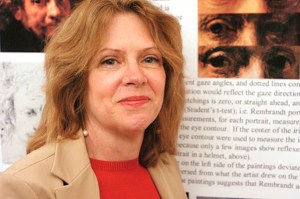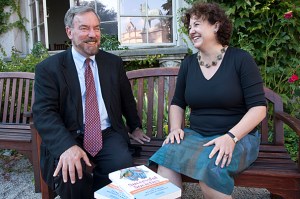Tag: Research
-
Health
From stem cells to heart muscle
A team of Harvard Stem Cell Institute researchers at Massachusetts General Hospital and collaborators at Harvard’s School of Engineering and Applied Sciences has taken a giant step toward possibly using human stem cells to repair damaged hearts.
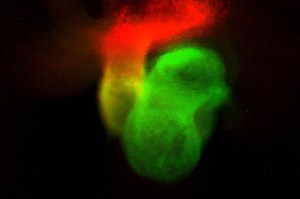
-
Campus & Community
Around the Schools: Faculty of Arts and Sciences
As part of an effort to develop creative solutions to Harvard’s projected long-term budget deficit, the Faculty of Arts and Sciences (FAS) and Harvard College recently launched an online Idea Bank where community members can submit recommendations for reducing costs and generating revenues.
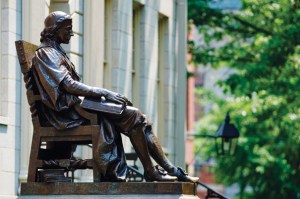
-
Campus & Community
HSPH professor Stephen Lagakos dies at 63
Stephen Lagakos, an international leader in biostatistics and AIDS research and professor of biostatistics at the Harvard School of Public Health (HSPH), died in an auto collision on Monday, October 12, 2009 in Peterborough, N.H. He was 63 years old.
-
Campus & Community
Rubin elected a corresponding fellow by British Academy
Donald B. Rubin was elected a corresponding fellow for distinction in research at the Annual General Meeting of the British Academy on July 16.
-
Campus & Community
Harvard Forest announces Charles Bullard Fellows in Forest Research for 2009-10
Harvard Forest recently announced the 2009-10 Charles Bullard Fellows in Forest Research. The fellowship program was established in 1962 to support the advanced research of individuals who show promise in making important contributions to forestry.
-
Campus & Community
Edmond J. Safra Foundation Center for Ethics invites applications for 2010-11 fellowships
The Edmond J. Safra Foundation Center for Ethics is now accepting applications for 2010-11.
-
Campus & Community
Around the Schools: Harvard Business School
The Business School has named Nobuo Sato (MBA ‘82) executive director for its Japan Research Center in Tokyo.
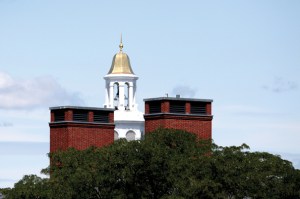
-
Science & Tech
Stem cells: Mending a broken heart?
Dr. Kenneth Chien speaks about a cardiac stem cell discovery that may be the first step on the path to regenerating healthy heart muscle.
-
Campus & Community
Study Finds Pro and Cons to Prostate Surgeries
People intuitively think that a minimally invasive approach has fewer complications, even in the absence of data,” said Dr. Jim C. Hu, the study’s lead author, who is director of urologic robotic and minimally invasive surgery at Brigham and Women’s Hospital in Boston.
-
Campus & Community
Stephen Lagakos, talented biostatistician with a common touch
“His seminal contributions to the field of AIDS research helped provide crucial statistical foundations upon which we could better combat this terrible disease,’’ Julio Frenk, dean of the Harvard School of Public Health, said in a statement issued yesterday.
-
Campus & Community
Tweens convene for learning, support on body image
In a study about weight and body satisfaction, researchers measured the height and weight of 4,254 schoolchildren from Nova Scotia and asked them how much they agreed with the statement “I like the way I look.”
-
Campus & Community
Body’s Own Antioxidant May Slow Parkinson’s Decline, Study Says
Today’s study “suggests a new approach in slowing down the rate of the disease,” said Schwarzschild, an associate professor of neurology at Harvard Medical School, in an Oct. 9 telephone interview. “People live with Parkinson’s disease for decades. We want to make those decades much more manageable and keep people much more mobile….”
-
Campus & Community
U.S. study shows mammograms save lives
“The most effective method for women to avoid death from breast cancer is to have regular mammographic screening,” Dr. Blake Cady of Cambridge Hospital Breast Center and Harvard Medical School in Massachusetts told reporters in a telephone briefing…
-
Campus & Community
Understanding the Anxious Mind
Jerome Kagan’s “Aha!” moment came with Baby 19. It was 1989, and Kagan, a professor of psychology at Harvard, had just begun a major longitudinal study of temperament and its effects. Temperament is a complex, multilayered thing, and for the sake of clarity, Kagan was tracking it along a single dimension: whether babies were easily…
-
Campus & Community
Autism’s genetic roots examined in new government-funded study
Researchers at Harvard University and Children’s Hospital Boston will sequence the genomes of at least 85 people diagnosed with autism in a bid to tease out the genetic basis for some cases of the neuropsychiatric disorder.
-
Campus & Community
Earth’s ‘Boring Billion’ Years Blamed on Sulfur-Loving Microbes
“If we really want to understand what’s happed in the history of Earth, we really have to understand this cross talk between the physical and biological processes,” says study coauthor Andrew Knoll of Harvard University.
-
Campus & Community
Wilson honored by King Carl XVI Gustaf of Sweden
Edward O. Wilson has been named Commander, First Class of the Royal Order of the Polar Star by King Carl XVI Gustaf of Sweden.
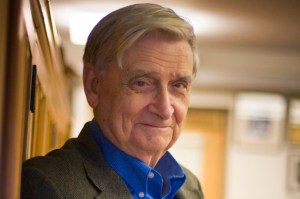
-
Campus & Community
Belfer Center announces 2009-10 research fellows
The Belfer Center for Science and International Affairs at the Harvard Kennedy School (HKS) announces 32 new fellows for the 2009-10 academic year.
-
Health
Betley probes natural power plant
Harvard chemist Ted Betley is examining the process of photosynthesis to understand and manipulate nature’s engineering.
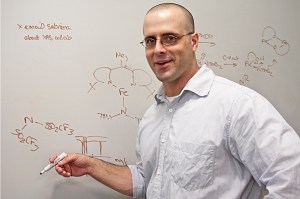
-
Campus & Community
Quest for a Long Life Gains Scientific Respect
In mice, sirtuin activators are effective against lung and colon cancer, melanoma, lymphoma, Type 2 diabetes, cardiovascular disease and Alzheimer’s disease, said David Sinclair, a Harvard Medical School researcher and co-founder of Sirtris. The drugs reduce inflammation, and if they have the same effects in people, could help combat many diseases that have an inflammatory…
-
Campus & Community
NIH funds risky, potentially transformative research by Harvard faculty members
Eighteen faculty members at Harvard and Harvard-affiliated institutions are among 115 scientists nationally whose promising and innovative work was recognized today with the announcement of three grant programs by the National Institutes of Health (NIH).
-
Campus & Community
If You Need to Work Better, Maybe Try Working Less
When members of 12 consulting teams at Boston Consulting Group were each required to take a block of “predictable time off” during every work week, “we had to practically force some professionals” to get away, says Leslie Perlow, the Harvard Business School leadership professor who headed the study.
-
Campus & Community
Aspirin Can Prevent Colon Cancer in High-Risk Group, Study Says
The Harvard study suggested aspirin could prevent tumors from growing by inhibiting Cox-2, an enzyme that may play a role in the initial growth of a tumor.
-
Campus & Community
Harvard Medical Study Links Lack of Insurance to 45,000 U.S. Deaths a Year
The Harvard study found that people without health insurance had a 40 percent higher risk of death than those with private health insurance — as a result of being unable to obtain necessary medical care.
-
Campus & Community
Diabetes Medication May Get New Life as Cancer Treatment
A national tax of 1 cent per ounce of soda and other sugary drinks could stem the United States’ obesity epidemic, while generating $14.9 billion the first year alone, health experts say.
-
Health
Online encyclopedia makes life searchable
One hundred and fifty thousand species down, 1.65 million to go. That is the tally for the online Encyclopedia of Life (www.eol.org/), an ambitious two-year-old project with the goal of nothing less than documenting in one place all of the 1.8 million known living species on Earth and making the information available to everyone with…
-
Campus & Community
Greyser honored by Institute for Public Relations
Steven A. Greyser, the Richard P. Chapman Professor of Business Administration Emeritus at Harvard Business School, has received a special award for his contributions to public relations education and research from the Institute for Public Relations.
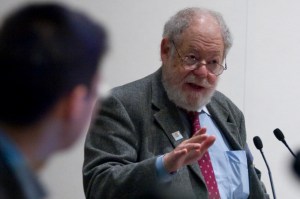
-
Campus & Community
Breakthrough on Open Access
On Monday, Harvard University was among five leading universities that announced a new “Compact for Open Access Publishing Equity” pledge to develop systems to pay open access journals for the articles they publish by the institutions’ scholars.



